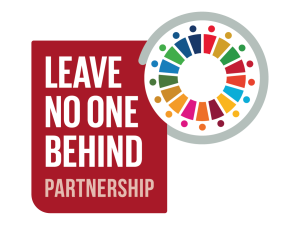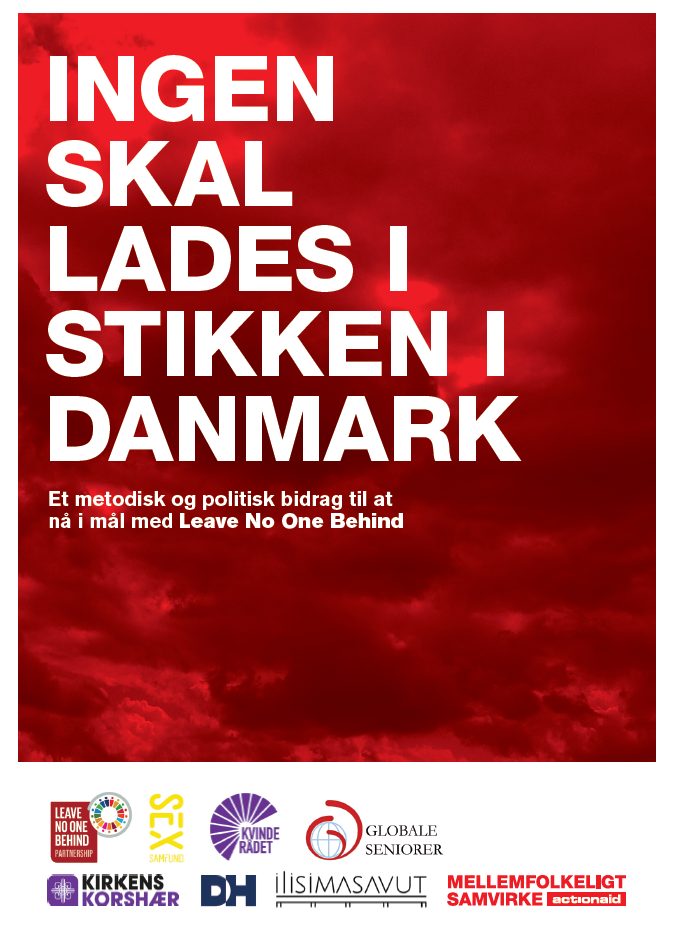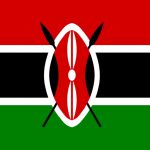Report Launch
Denmark has a yearly SDG week. It was initially scheduled to take place in September 2022 but was delayed due to their national election. It took place in the first week of February 2023 with many debates and talks about the SDGs. It was arranged by the media Mandag Morgen and Altinget. The Leave No One Behind (LNOB) coalition in Denmark had a slot at the event for a debate and for the launch the LNOB report. The report was launched at the Ministry of Foreign Affairs with around 50 participant and 60 more online. Tim Whyte, ActionAid Denmark (AADK) General Secretary presented the report and main findings. This was followed by a panel discussion about barriers for women and ethnic minorities. Tim Whyte moderated the event with two politicians (Sascha Faxe from Alternativet, in Parlimant and Sisse Marie Welling, Mayor of Copenhagen for Health and Care) and Yildiz Akdogan who is the chairwoman of Kvinderådet (the Women’s Council Denmark) and a member of the Danish LNOB coalition and Sara El-Khatib (a young debater and volunteer with AADK). The debate was followed by questions from the audience.
Report summary
The LNOB report produced by the LNOB coalition in Denmark is both methodologically strong and has thematic political recommendations. The report is addressed to the government and other authorities and stakeholders who have the main responsibility to implement the SDGs and LNOB in Denmark.
Methodologically, The Danish LNOB coalition found inspiration in the UN’s guiding principles to national states on how to implement LNOB with five steps (link page 11). With point of departure in the first three steps, the coalition made focus group interviews with three target groups (ethnic minorities, elderly and Inuit living in DK). The target groups’ replies on how they felt left behind, determined what was important to take further. That resulted in three thematic areas that the LNOB coalition added to with additional knowledge from the target group and desk research. In addition, political recommendations were produced based on key insights from the interviewees and references from the coalition members. The coalition also added insights from five other target groups (women, LGBT+ community, refugees, people with disabilities, socially disadvantages groups such as homeless people).
Thematically, the other half of the report focuses on Health (SDG 3) Representation (SDG 10) and Legal Security (SDG 16). In each chapter, the Danish coalition provides a list of concerns where the target groups feel left out (e.g., elderly in health system where the digitalisation limits them / e.g., ethnic minorities are less represented in politics / e.g., Inuit don’t have the same access to interpretation when considered them as Danish citizens coming from Greenland) followed by political recommendations. Each chapter also includes a case story from each target group the coalition interviewed.
The Danish coalition produced this report because of lack of focus on LNOB in Danish politics around the SDGs. The coalition welcomed the government’s attempt to include the LNOB focus on their latest action plan for the Global Goals from 2021 but it was very unclear how it worked methodologically as there was no meaningful participation of those potentially left behind. Therefore, the coalition saw the need to produce this report with their pilot project – being fully aware of the fact that the coalition alone cannot deliver on all the listed recommendations due to lack of resources. The coalition considers it as the government’s responsibility to do so – with concrete recommendations on how to (methodologically) ensure the fulfilment of the promise to LNOB and what to do (political recommendations) for better inclusion and rights for the relevant groups. The coalition also acknowledges that there could be even more groups of marginalised communities in society, besides the groups they represent.
Methodical and Political Recommendations
First of all the government should follow the UN five steps for implementing LNOB: link page 11.
- STEP 1: Who is being left behind? Gathering the evidence.
- STEP 2: Why? Prioritization and analysis.
- STEP 3: What? What should be done?
- STEP 4: How? How to measure and monitor progress
- STEP 5: How to advance accountability for LNOB.
- Cross-cutting guidance: Meaningful participation.
Methodical recommendations:
- Assessment of ‘who’ has been left behind must be based on an assessment of geographical, legal and socio-economic factors. Systematic measurements (such as a national poverty line) and international recommendations (such as from the Universal Periodic Review in the UN and the Global Gender Gap) should also be included. It is particularly important to secure disaggregated data (disaggregated by gender, ethnicity, age, etc.) that also capture multidimensional forms of inequality at once (such as sexuality, ethnicity, disability).
- Nothing about us without us must be lived up to through active and meaningful involvement. There must be a focus on empowerment, so that more people can independently participate in the development as co-creators and contributors in the entire process from planning, implementation and monitoring.
- Civil society and organizations representing the target groups should also be involved to ensure the inclusion of people who do not have the resources to come forward themselves. It will contribute to valuable knowledge and insight into existing barriers, needs and relevant solutions, as well as monitoring efforts.
Political recommendations:
- LNOB screenings must ensure that efforts are intended for the most overlooked and reduce the risk of negative spillover effect. Screening must be done for all new legislation and political strategies but also as starting point for the ministries’ work with the sub-goals of the World Goals for which they are responsible.
- Funding and prioritization of sufficient resources are absolutely essential to achieve LNOB. Both for government and state work, and in the form of support for civil society actors to act as partners in safeguarding LNOB – e.g., the Danish LNOB coalition occupation.
- Monitoring with annual follow-up in a progress report prepared in collaboration with an LNOB panel with those it concerns. All work on the Global Goals should be based on specific annual targets. Denmark’s submission of the report on the World Goals at The UN must be inclusive from start to finish.
(Please note that the LNOB Report from Denmark is only available in Danish)








